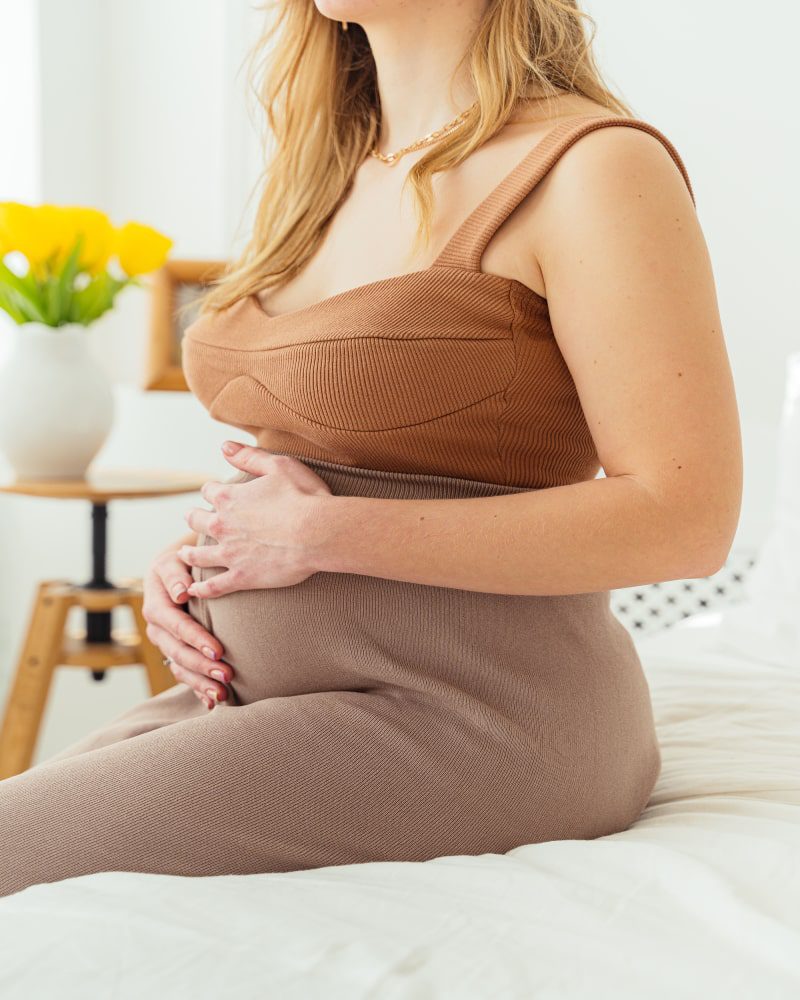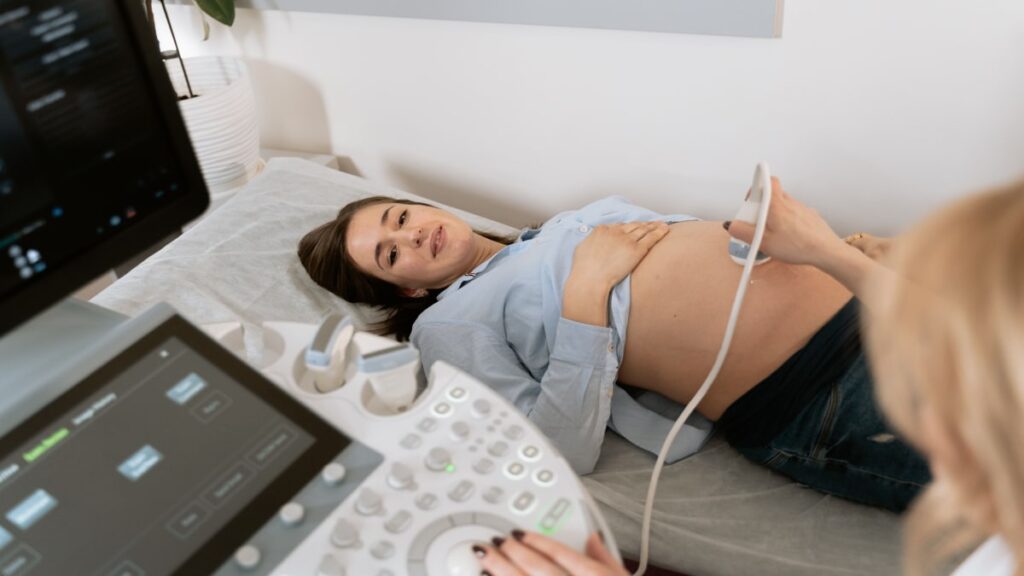If you’re hoping to become pregnant soon, there are a few things you can do to help increase your chances. First, make sure you’re in good health and that your weight is within a healthy range. Eating a balanced diet and taking prenatal vitamins will also help. Another key factor is timing intercourse around your ovulation cycle. You can track your ovulation by using an ovulation predictor kit or by charting your basal body temperature. Once you know when you’re ovulating, aim to have intercourse during that time frame. The only way to get pregnant fast and easy is to follow a proven method. Millions of women want to become pregnant every year but only a few are actually successful.
There are so many misconceptions about how to become pregnant that most women are not actually able to get pregnant. This blog will help you to get pregnant fast and easily.
Finally, try to relax and reduce stress as much as possible. Stress can influence your hormone levels and make it more difficult to conceive.
How Can I Get Pregnant?
The first step to getting pregnant is having sex regularly. If you’re wondering how you can get pregnant, there are a few things you need to do in order to increase your chances. First, you need to make sure you’re having sex during your ovulation period – this is when you’re most fertile and your eggs are released. You can track your ovulation by using an ovulation calculator or chart, or by paying attention to your body’s natural cues (like changes in your cervical mucus). Once you know when you’re ovulating, have sex frequently during that time – every day or every other day is ideal.
In addition to having sex during ovulation, you should also make sure you’re eating a healthy diet, getting enough exercise, and taking prenatal vitamins with folic acid to help prevent birth defects. If you’re doing all of these things and you’re still not getting pregnant, you may want to talk to your doctor to see if there’s anything else you can do.
When Am I Most Fertile?
You can get pregnant when you ovulate, which is the time when your eggs are released from your ovary and ready to be fertilized.
You’re most fertile between days 10 and 17 of your menstrual cycle, which means that if you have a 28-day cycle, it’s best to try for pregnancy between day 14 (when fertility begins) and day 21. If you have a longer or shorter cycle than 28 days, don’t worry! Just use these dates as general guidelines for when to start trying again after having previously miscarried or experienced an unsuccessful attempt at conceiving—you’ll probably still get pregnant eventually if you wait long enough for nature’s clockwork mechanism to do its thing!
For those who haven’t calculated their cycles before taking this step into uncharted territory: When counting forward from the last day of menstruation (which is usually marked by spotting), subtract four days from each month until there are three remaining in order to determine whether ovulation has occurred during that period.
If I Have Regular Periods, When Should I Try To Get Pregnant?
If you have regular periods, it is likely that your body is ovulating every month. However, if you have irregular periods or don’t know when they will begin, tracking them may be helpful in getting pregnant faster. Ovulation predictor kits are available at most pharmacies and cost around $20-$30 dollars each time they are used (most women will use them once).
If you aren’t ovulating yet but think that something might be wrong with your cycle , then it’s best to see a doctor for further testing before trying to conceive again.
What Is The Best Time Of Day To Try To Conceive?
The best time of day to try to conceive is around 12 pm-2 pm. This is when you are most likely to ovulate, and thus the most fertile. It’s also around this time that your body releases estrogen and progesterone in order to prepare itself for pregnancy.
Can Stress Affect My Fertility Levels?
Stress can affect your fertility levels in a number of ways. Stress can cause hormonal changes, which can make it harder for you to get pregnant. It’s also possible that stress will prevent ovulation and lead to irregular periods too. Because of these effects on fertility, stress is considered one of the top reasons people who want parenthood don’t conceive naturally or who have trouble getting pregnant after trying for years without success.
What sexual positions are best for getting pregnant?
There are a few different sex positions that are believed to be the best for conceiving. The missionary position is often thought of as the best position for conceiving because it allows for deep penetration and puts the sperm closer to the cervix. Other positions that are believed to be good for conceiving are doggy style and side-by-side. Some people believe that lying on your back after sex with your hips elevated can also help to conceive because it allows the sperm to travel up the cervix more easily. Ultimately, there is no one best sex position to conceive, and what works best may vary from person to person.
How Soon Can I Take A Pregnancy Test?
You can take a pregnancy test as early as 4 days after ovulation, or 5 days after ovulation. It’s recommended that you wait until your period is 2 weeks old before testing, though some people may be able to do it sooner than that.
There are some things to consider when taking this test:
- The accuracy of the results depends on how much time has passed since conception and whether you’ve had sex recently.
- If you’re planning on using digital technology like Clearblue Easy Ovulation Test Kit or Fertility Friend Early Pregnancy Tests, then these tests are more likely to give accurate results than older methods such as urine tests which require repeated collection over several days.
- However, these newer methods still aren’t perfect and should not be used without supervision from healthcare professionals who understand their limitations!
How Do I Know If I’m Ovulating?
- The most common symptom of ovulation is a slight change in your cervical mucus.
- Another indicator of ovulation is that you start to feel horny like your period is starting.
- You can also track your fertility by checking out the temperature at home and noting whether it rises or falls between two days. If it’s above 97 degrees Fahrenheit (36 degrees Celsius), then conception may not be far away!
What Are The Signs And Symptoms That Indicate Ovulation Has Occurred?
Ovulation is the process by which a woman releases an egg from her ovary. Oftentimes, it can be hard to tell whether or not you have ovulated—especially if you’re trying to get pregnant naturally. The main symptoms of ovulation include:
- A drop in basal body temperature (BBT)
- Menstrual period length and flow
- Spotting between periods
Which Sleeping Positions Help Me Get Pregnant Faster?
- Sitting up is best.
- Side sleeping is best.
- Lying on your back is not good for fertility and may cause you to wake up with cramps or another discomfort in the middle of the night that can make it harder to fall asleep again. Which means you’re less likely to get pregnant as quickly as possible!
- Lying on your stomach isn’t great either—it’s just as bad for getting pregnant as laying down flat (though sometimes there are exceptions).
It’s Not Easy To Get Pregnant!
It takes time, and you need to be patient. If you want to become pregnant, relax and be patient. It’s important that you have a healthy lifestyle and go about your day as normally as possible—don’t skip meals or sleep through the night for days on end without taking a break from working out or going out with friends!

1 comment
This is a very good tips especially to those new to blogosphere, brief and accurate information… Thanks for sharing this one. A must read article.